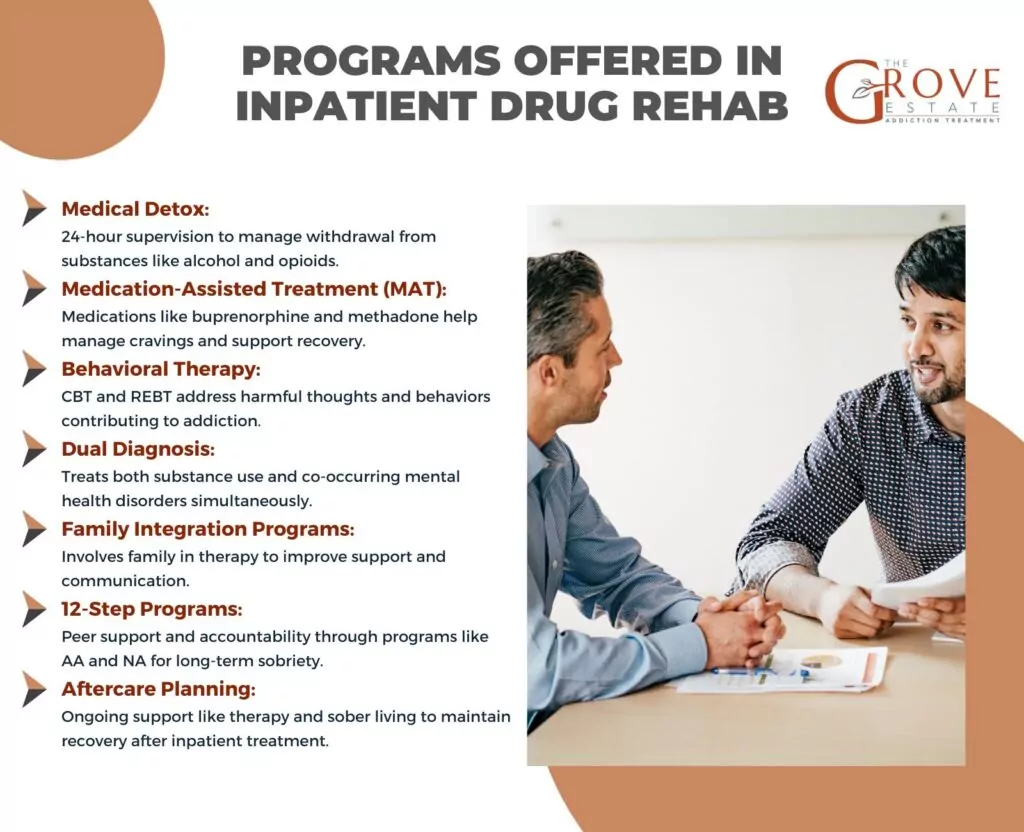A Comprehensive Guide to Medicine Rehabilitation Solutions for Effective Rehab
Understanding the intricacies of medicine recovery is pivotal for achieving long lasting healing. A thorough guide to drug rehab services lights up the various therapy alternatives available, highlighting the requirement for personalized approaches tailored to details requirements. From detoxing to outpatient programs, the effectiveness of these services frequently depends upon the assimilation of robust assistance systems and resolving underlying psychological problems. As we explore the crucial elements that add to effective rehab, one have to consider just how these aspects link to create a sustainable course to soberness. What may be one of the most significant facet in this intricate process?
Comprehending Dependency and Recovery

Addiction is a complex condition that influences people both physically and emotionally, typically causing a cycle of compulsive behavior despite harmful repercussions. It generally materializes as a chronic illness, characterized by the inability to stop utilizing a material or engaging in a behavior, despite the adverse effect it may have on one's life. This ruthless cycle is usually sustained by numerous aspects, including genetic proneness, environmental impacts, and psychological problems.
Recuperation from dependency is a complex procedure that entails not only the cessation important usage yet also the improvement of one's lifestyle and believed patterns. Effective recovery requires an extensive technique, resolving the underlying root causes of addiction and growing coping techniques to avoid regression. Support group, including therapy, therapy, and peer support groups, play a critical function in fostering resilience and liability.
Understanding the elaborate dynamics of addiction and recovery is vital for both individuals struggling with material usage and their households. By acknowledging the intricacies and difficulties involved, individuals can much better browse their journey to healing, ultimately leading to much healthier, more meeting lives.
Kinds Of Rehabilitation Programs
The journey to recovery is sustained by a selection of rehabilitation programs customized to meet the diverse needs of people facing compound usage disorders. These programs can be generally categorized right into numerous kinds, each made to deal with specific elements of dependency and facilitate effective recuperation.
One typical kind is the detoxification program, which offers clinical guidance and assistance during the withdrawal stage, ensuring safety and comfort. Adhering to detox, individuals may involve in property recovery, where they stay at a therapy center for an immersive recovery experience. This setting fosters a structured atmosphere helpful to recovery.
One more option is outpatient recovery, allowing individuals to receive treatment and assistance while keeping their daily duties. This flexibility can be advantageous for those with a solid support group in your home (alcohol detox Chester NJ). Specialized programs also exist for certain populations, such as women, teenagers, or individuals with co-occurring mental health conditions, ensuring that therapy is culturally and developmentally appropriate
Additionally, all natural programs may integrate alternative treatments, such as yoga or art treatment, promoting total health. Understanding the numerous kinds of rehab programs is critical for picking the most appropriate path toward long-term healing.
Inpatient vs. Outpatient Solutions
While selecting in between inpatient and outpatient solutions can be a critical choice in the recovery procedure, understanding the unique functions and advantages of each choice is important. Inpatient solutions involve an organized environment where individuals stay at a rehab center for an extensive duration, usually varying click this from 28 days to numerous months. This immersive method uses 24/7 clinical guidance, a thorough therapy plan, and a helpful area, making it specifically beneficial for those with severe dependency or co-occurring mental health and wellness disorders.
On the other hand, outpatient services allow individuals to get therapy while maintaining their day-to-day obligations, such as job or family members commitments. This versatile option often involves scheduled treatment sessions, therapy, and assistance teams, providing a balance between specialist guidance and personal accountability. Outpatient services might appropriate for those with light to moderate addiction or those transitioning from inpatient care.
Ultimately, the choice between inpatient and outpatient services should be directed by the individual's certain needs, the extent of their dependency, and their support group. Recognizing these factors can help in choosing one of the most efficient path towards successful rehabilitation.
Assistance Systems in Rehabilitation
Support systems play an important role in the recovery process, offering people with the useful and emotional resources needed for recovery. These systems usually consist of family, professionals, buddies, and peers that add to the person's healing journey. A robust assistance network fosters a feeling of belonging and comprehending, which can minimize feelings of seclusion frequently experienced throughout recovery.
Household involvement is especially considerable, as loved ones can provide encouragement, responsibility, and a risk-free space for open interaction. drug rehab Chester NJ. Including household participants in therapy sessions can improve understanding and improve connections, inevitably profiting the recovering individual
Peer support teams, such as Alcoholics Anonymous or Narcotics Anonymous, provide common experiences and understandings, assisting individuals feel less alone in their battles. These teams motivate participants to share their tales, fostering a neighborhood that promotes mutual growth and strength.
Expert assistance, including therapists and therapists, provides specialized assistance customized to specific demands. They aid determine individual triggers, coping methods, and regression prevention techniques. By incorporating these various support group, people in rehabilitation can construct a strong structure for continual healing and long-term success.
Variables to Think About for Success
Success in drug rehab depends upon a number of important elements that can considerably influence a person's journey toward healing. The selection of a suitable therapy program is vital. Customized strategies that address specific addiction types, co-occurring mental health disorders, and individual find more info scenarios improve the likelihood of successful results.
The visibility of a solid assistance system, including family, good friends, and counselors, plays an important function in cultivating a supporting setting. Emotional and useful assistance during and after treatment can help individuals navigate challenges and obstacles.
In addition, an individual's motivation and commitment to the recuperation process are important - alcohol detox Chester NJ. Self-motivation, my latest blog post together with setting practical goals, can empower individuals to take active steps towards their recovery
Furthermore, aftercare services ought to not be ignored. Continued assistance through therapy, support system, and community resources helps to sustain recuperation and avoid regression.

Verdict
To conclude, successful rehab relies upon a complex method that incorporates tailored treatment options, effective support group, and detailed aftercare solutions. Recognizing the intricacies of addiction and the selection of readily available rehabilitation programs is crucial for cultivating recovery. By dealing with specific needs and underlying concerns, people can boost their chances of sustained soberness. Ultimately, informed decision-making relating to treatment choices plays an important function in accomplishing long-term success in the recuperation journey.
The trip to recovery is supported by a variety of recovery programs tailored to meet the diverse needs of people dealing with compound usage problems. One more choice is outpatient recovery, enabling individuals to receive treatment and assistance while preserving their daily responsibilities. Ultimately, the choice between inpatient and outpatient solutions must be assisted by the individual's specific needs, the seriousness of their dependency, and their assistance system. Support systems play a crucial duty in the rehab procedure, offering individuals with the emotional and functional sources needed for recuperation. By dealing with private needs and underlying concerns, individuals can improve their chances of sustained sobriety.